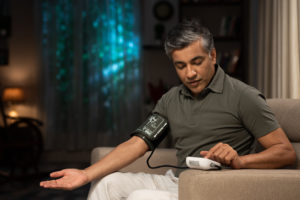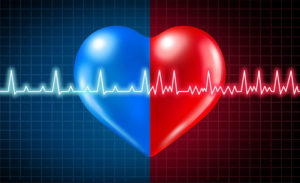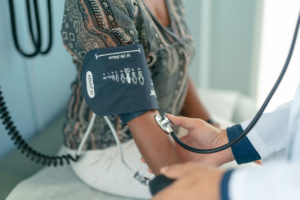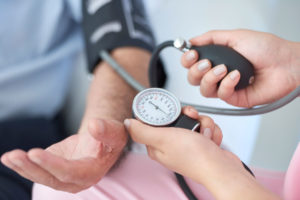High blood pressure, also called hypertension, is a health problem that needs proper care. If you do not manage it correctly, high blood pressure can lead to serious issues like heart disease. That is why finding the right clinic for treatment is so important. This article will help you learn what to look for in clinics for high blood pressure treatment and why having the right doctor matters.
Whether you are new to managing high blood pressure or have been dealing with it for a while, this guide will help you.
Choosing the Right Clinic
Selecting the right clinic is critical for effective blood pressure management. Clinics differ in the quality of care, range of services, and expertise they offer.
Here are some factors to consider when making an informed choice.
Look for Experienced Providers in Internal or Family Medicine
The expertise of the medical providers at a clinic matters greatly. Specialists in internal medicine or family medicine are beneficial for high blood pressure.
Internal medicine providers have extensive knowledge of adult health and complex conditions.
They can help pinpoint underlying causes of hypertension and recommend tailored treatment plans.
Meanwhile, family medicine providers offer a holistic approach. They treat patients of all ages and focus on long-term health outcomes.
Consulting professionals from either specialty ensures that you receive expert advice and care.
Assess the Range of Services
Does the clinic offer a broad set of services for managing high blood pressure? A good clinic will provide more than prescriptions and blood pressure checks.
Look for clinics that offer support services. These services may include dietary counseling, stress management, and lifestyle change programs.
These services can make a significant difference in improving long-term health outcomes.
Some clinics also provide advanced testing, like kidney and heart function assessments. These tests are to monitor complications associated with hypertension.
Clinics focused on comprehensive care will be able to meet your unique needs better.
Evaluate the Clinic’s Approach to Patient Care
A patient-centered and compassionate approach is vital. High blood pressure management is ongoing and requires trust and transparent communication.
Choose clinics for high blood pressure treatment that value your concerns. Look for those that answer your questions thoroughly and involve you in planning your treatment.
Ask yourself:
- Does the clinic encourage open communication?
- Do the medical staff take the time to explain treatment options clearly?
- Are appointments easy to schedule?
Clinics with a supportive and empathetic approach tend to result in better adherence to treatment plans.
Location and Accessibility Matter
Consistency is key when managing high blood pressure. Consider the clinic’s location when making your choice.
A convenient clinic increases the likelihood of consistent follow-ups and appointment attendance.
Ensure the clinic is accessible via public transport or offers convenient parking.
Research Reviews and Testimonials
Patient reviews provide valuable insight into the quality of care offered at a clinic. Look for testimonials that highlight positive patient experiences and successful management outcomes.
Additionally, see if you can find feedback about timely responsiveness from staff.
Online reviews can highlight whether the clinic is well-regarded, efficient, and professional. While a few negative reviews are not uncommon, consistently low ratings can be a red flag.
Insurance and Cost Transparency
Before committing, confirm that the clinic accepts your insurance policy. High blood pressure treatment often involves regular checkups and medications, so affordability matters.
If insurance is not an option, choose a clinic with transparent pricing and flexible payment plans.
Providers that are upfront about costs allow you to plan your budget wisely without interruptions to your treatment.
The Benefits of Finding the Right Clinic for High Blood Pressure Treatment
Finding the right clinic for high blood pressure treatment near you has many benefits. Here is how it can help:
Better Blood Pressure Control
Experienced clinics use good tools and skilled doctors to keep your blood pressure steady. This lowers the risk of serious problems like heart disease or stroke.
Care Made Just for You
The best clinics create care plans based on your needs. They consider your age, weight, medical history, and lifestyle to make treatment work for you.
Less Stress
Trusting your health to a reliable clinic can help you feel calm. Knowing you are in good hands lets you focus on managing your health instead of worrying.
Healthier Long-Term Life
With proper care, you are less likely to face future health problems. Clinics can catch issues early and help you live a longer, healthier life.
More Support
Good clinics provide extra help like support groups or health resources. Feeling supported makes it easier to stick to your care plan and stay healthy.
Best Clinics for High Blood Pressure Treatment in Wellington, FL
Finding the right clinic for treating high blood pressure is a decision that can significantly affect your life. We urge you to take the time to evaluate options using the factors mentioned above. For patients seeking care for high blood pressure in Wellington, Advanced Medical is here to help.
Dr. Ishan Gunawardene is an expert in internal medicine. Nurse practitioner Shariffa Gunawardene specializes in family medicine. Our team works together to create care plans that fit your needs, use simple tests, and give clear nutrition advice. Our goal is to help you manage your blood pressure and stay healthy. Call us today at (561) 434-1935 to schedule a consultation. Taking this first step could lead you to the healthier life you deserve.
Sources:
https://my.clevelandclinic.org/health/diseases/4314-hypertension-high-blood-pressure
https://www.mayoclinic.org/diseases-conditions/high-blood-pressure/symptoms-causes/syc-20373410
https://www.mayoclinic.org/diseases-conditions/high-blood-pressure/diagnosis-treatment/drc-20373417










